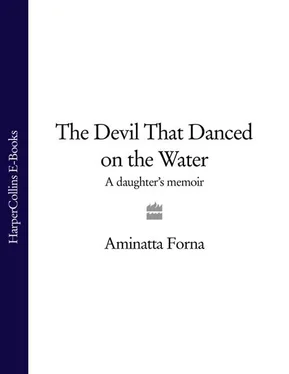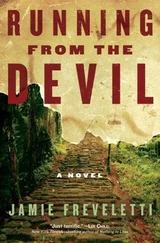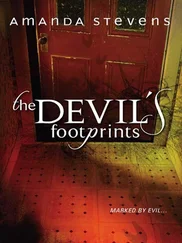For me the image of her face and her hairstyles faded and brightened through the years. But her voice: I never, ever forgot the sound of her voice.
They met at a Christmas dance in 1959. My father was a third-year medical student at Aberdeen University and my mother was in her final sixth-form year at the Aberdeen Academy and a volunteer at the British Council. She wore her hair in a French plait, a tight-waisted skirt that made the best of her voluptuous figure and winkle pickers on her feet.
My father was just five foot eight; one of those people everyone imagines to be a great deal taller. In his student photograph he wears a well-cut suit, narrow in the leg and lapel, in the style of the sixties. His dark skin glows against the starched white cuffs and collar. The expression in his eyes is both amused and utterly self-possessed. Scattered like freckles across his cheeks and nose are dozens of small round scars, remnants of a childhood battle with smallpox. Yet the scars, like his height, were obscured by his own self-confidence. He had an eye for attractive women and he crossed the room to her: ‘I’m Mohamed.’ He extended his hand. ‘And you are…?’
Maureen Margaret Christison was a local girl, raised all of her nineteen years in Aberdeen. Her father was a clerk in a travel agency and a strict Presbyterian; her mother, dark-eyed and anxious, had a job in a milliner’s until she began to have babies and slowly developed agoraphobia. Maureen was smart, attractive of a strong, open type that in Scotland they call bonny. The confines of home life were as suffocating to the daughter as they were comforting to her mother. Maureen found herself drawn on many nights to the British Council, to the events held for overseas students which she volunteered to help organise.
For the African students Britain was a new and demanding experience. Many kept to themselves, finding safety in numbers. They were all on government scholarships – men and women chosen to lead their countries one day soon across the post-independence horizon towards a new Africa where they would design bridges, run schools, plan towns, drain swamps, build hospitals or, as likely, become desk-bound bureaucrats.
When he was fourteen my father had won a scholarship to Bo School. The Eton of the protectorate of Sierra Leone was established by the British in order to educate the sons of chiefs to take their place in Britain’s empire. He spent seven years there, wearing a white uniform, taught by English masters. In his last year he became head boy and while he was waiting for the results of his scholarship application to read medicine in the UK he taught the junior years. Alongside his formal education the years at Bo gave him an understanding of the men who ruled his country and their values and their history, or at least the version taught in England’s public schools.
Before they boarded a cargo ship bound for Liverpool at Freetown’s docks, the only understanding of Britain most new pioneers possessed was through their first British Council induction seminar. The arrivals from the provinces were herded into a darkened hall, where they watched reels of black and white short films entitled An Introduction to British Life and Culture.
In one short film, Lost in the Countryside , two young Africans in old-fashioned tweed suits amble through a pastoral scene. Their skin is so dark they almost look like they’re white actors in blackface, and their hair is brushed straight upwards. Suddenly they realise they can’t find their way back and a crescendo of mishaps parallels their mounting panic. When they emerge from a haystack pulling strands from their hair an authoritative voice cuts in: ‘If you become lost in the countryside do not panic. Find a road. Locate a bus stop. Join the queue [and there, in the middle of nowhere was a line of people]. A bus will arrive, board it and return to the town.’ The film ends with the Africans looking mightily relieved sitting on the bus, surrounded by smiling locals.
They were given a map of the London Underground, a train timetable, and a talk on expected etiquette, including how to behave in a British home. Visits should be undertaken on invitation only. Never walk into a British household and sit in the chair belonging to the man of the house. In Britain visitors are expected to maintain a flow of conversation. It is polite to decline a second helping of food. And on it went.
So very different from the African household in which I was raised. On the weekends and even the weekdays my aunts and uncles appeared at all hours and sat on the veranda for lengthy periods, just keeping company. They talked for just as long as someone had something to say and then lapsed into companionable silence. Every now and again one of my aunts would break the silence to begin the routine of greetings all over again. When they’d finished, people would snort with serene satisfaction; my aunts would adjust their head-dresses and lappas; and settle even more deeply into themselves. Conversation is a whim, not an art. Of me no one expected anything except a respectful silence and the appearance of listening. If I’d begun to try to amuse them with stories and precocious attempts at conversation, the way children in England did, they would have exchanged sly glances. ‘How dis pickin dae talk so!’
In time, very often when most people had already been there for half the morning, the cook would begin to prepare food. I’d be given a plate with a man-sized helping and if it was a special occasion we were all expected to go back time and time again to taste each dish: mounds of jollof rice, cooked in tomatoes so that the rice turned pink, sour sour or stewed sorrel, okra stew, chicken fried with fresh Scotch bonnet peppers, deep-fried plantains. At the end of the day half the visitors left carrying a tin dish wrapped in cloths to take home for the rest of the family.
From Freetown to Liverpool, then by train to Aberdeen, where the green and ochre of Africa was replaced by shades of blue and grey. In winter the sky over northern Scotland turned to black and the granite of the buildings glittered like silver. And the cold, it was alive! It stung legs, bit cheeks, pinched fingers and toes. It was like going for a swim and being caught in a flurry of jellyfish. The newest arrivals were always obvious: they wore old-styled cotton suits made by their provincial tailors, neither customer nor tailor imagining for a moment that they would not be thick enough to stand the coolest weather. By the end of the first week their smart new suits were packed away in tin trunks for good.
No traveller arrived in Britain from Africa without being suitably awed by his first sight of a terraced row. The houses were built in a single row that ran the entire length of the street like a set of dentures. A rich man in Africa builds his house to stand out from every house around it. In Britain people owned their homes, but all the houses looked the same. A story was told of an undergraduate on his first day in Aberdeen who was taken to his friend’s student digs in a terraced row. He thought his friend must have made good and exclaimed on the length of the house. When the others laughed and pointed out that the building was in fact many houses, he was crestfallen. Now the house began to looked cramped. But once you were inside you saw there were more rooms than you could ever guess at from the narrow frontage.
My father discovered the sin of sweet things for the first time in his life, munching his way through packets of Opal Fruits. Muslim or not, his newly awakened sweet tooth extended to an enthusiasm for sweet alcoholic drinks: sherry or brandy mixed with ginger ale. In Aberdeen he had his first toothache, followed by his first visit to the dentist and his first filling.
Читать дальше












